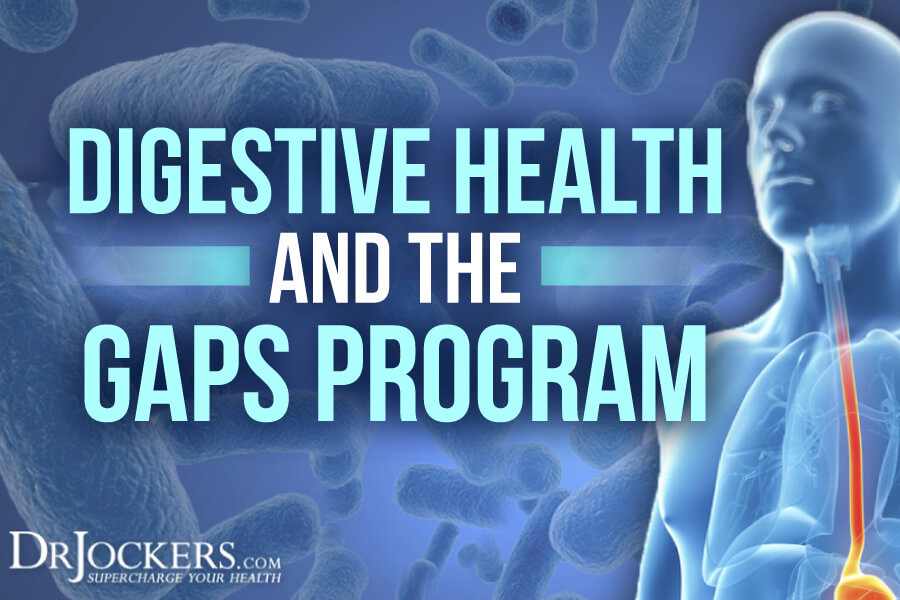
Using the GAPS Diet To Improve Digestion
The GAPS diet was developed in order to help improve the function of individuals with a compromised microbiome. This article will go into much more detail on the microbiome and specific strategies, including how to use the GAPS diet to improve digestive health.
The Human Microbiome Project (HMP) is a research initiative launched in 2008 with the goal of identifying and characterizing the microorganisms found in healthy and diseased humans (1). The findings so far have been absolute breakthroughs in our understanding of the origins and solutions to the vast majority of human health problems.
Many researchers have estimated that there are ten times more microbial cells than there are human cells in a typical individual (2). The HMP scientists believe there to be more than one hundred times the number of microbial genes to human genes.
The project found that bacterial protein-coding genes are 360 times more abundant than human genes in the body. This means that the genetic makeup of the microbiome has a greater influence on an individual’s health than the intracellular genetics of the individual.
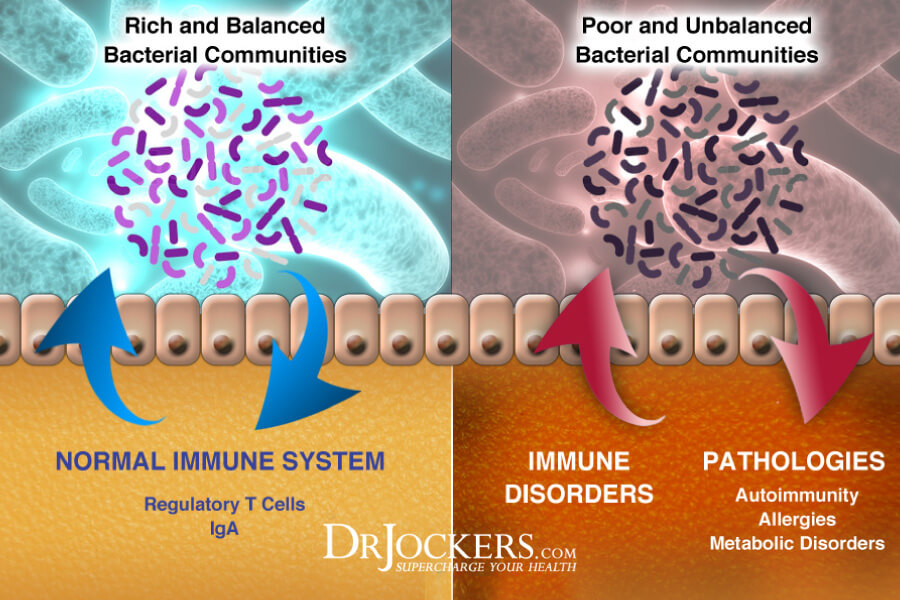
Your Gut is Alive:
There is thought to be about 500 different species of microrganisms within the gut. Many of the microorganisms in the human gut have yet to be characterized. The majority of the gut is made up of different forms of bacteria but there are also many forms of yeasts, single celled eukaryotes, helminth parasites and various different viruses. One of the unique viral forms are called bacteriophages which are viruses of bacteria.
Communities of microorganisms are located in every exposed area and cavity of the body. However, the gut provides a dark, moist environment with continuous supply of nutrition and so it is the optimal breeding ground for microbial life.
Microbial cells make up anywhere from three to six pounds of weight within the individual. The vast majority of these are beneficial and help metabolize food particles and form highly absorbable nutrients for the person to digest.
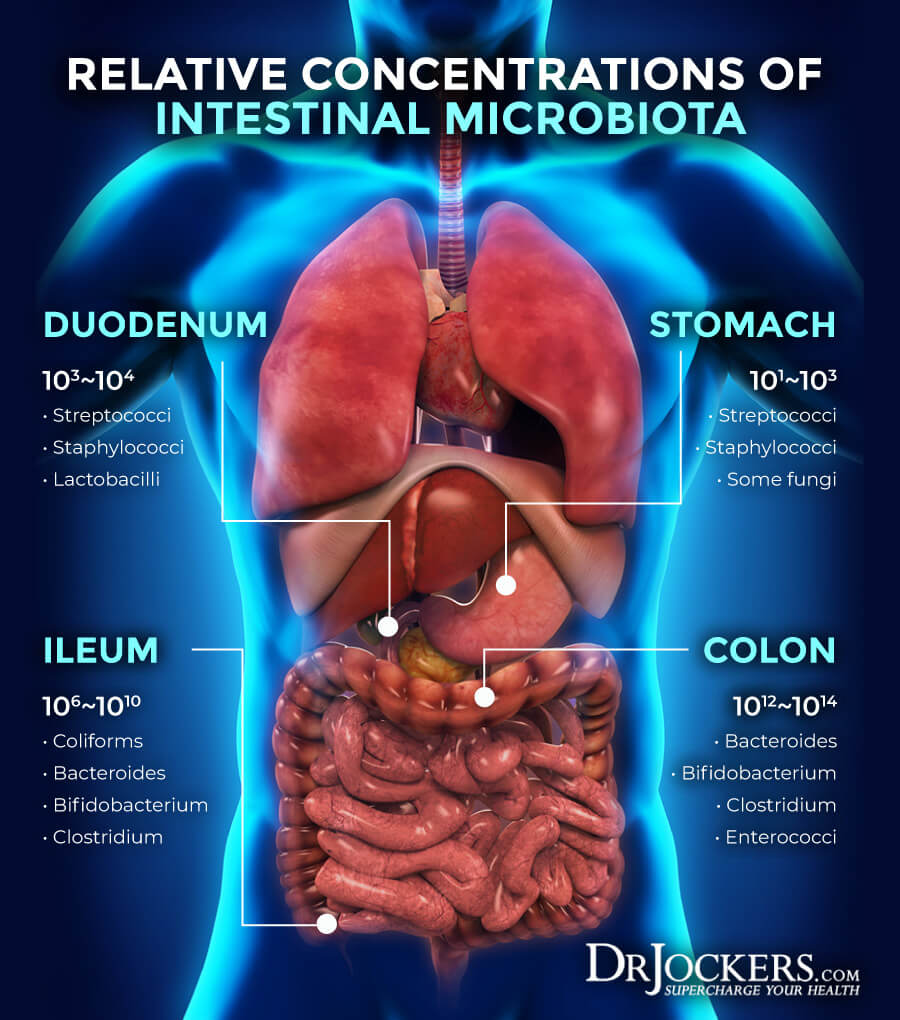
The Importance of Progenic Microbes:
This internal ecosystem is dependent upon certain beneficial species being widespread and in control. These symbiotic microbes are progenic in that they support life. These organisms provide a protective barrier that guards the intestinal wall against pathogenic bacteria, parasites, fungi, viruses and environmental toxins. These organisms also create anti-microbial substances that destroy pathogenic organisms. They are very powerful, natural antibiotics, antivirals, and antifungals.
The health of the body and mind are especially dependent upon the health of the human microbiome. The ideal ratio of progenic to pathogenic microbes is thought to be 85:15. Most Americans today have this ratio flipped in favor of the antagonistic microbial communities. This is called dysbiosis or bad bacterial balance. Dysbiotic conditions are due to the influence of environmental toxins that wipe out progenic species and create an environment conducive to parasitic growth (3).
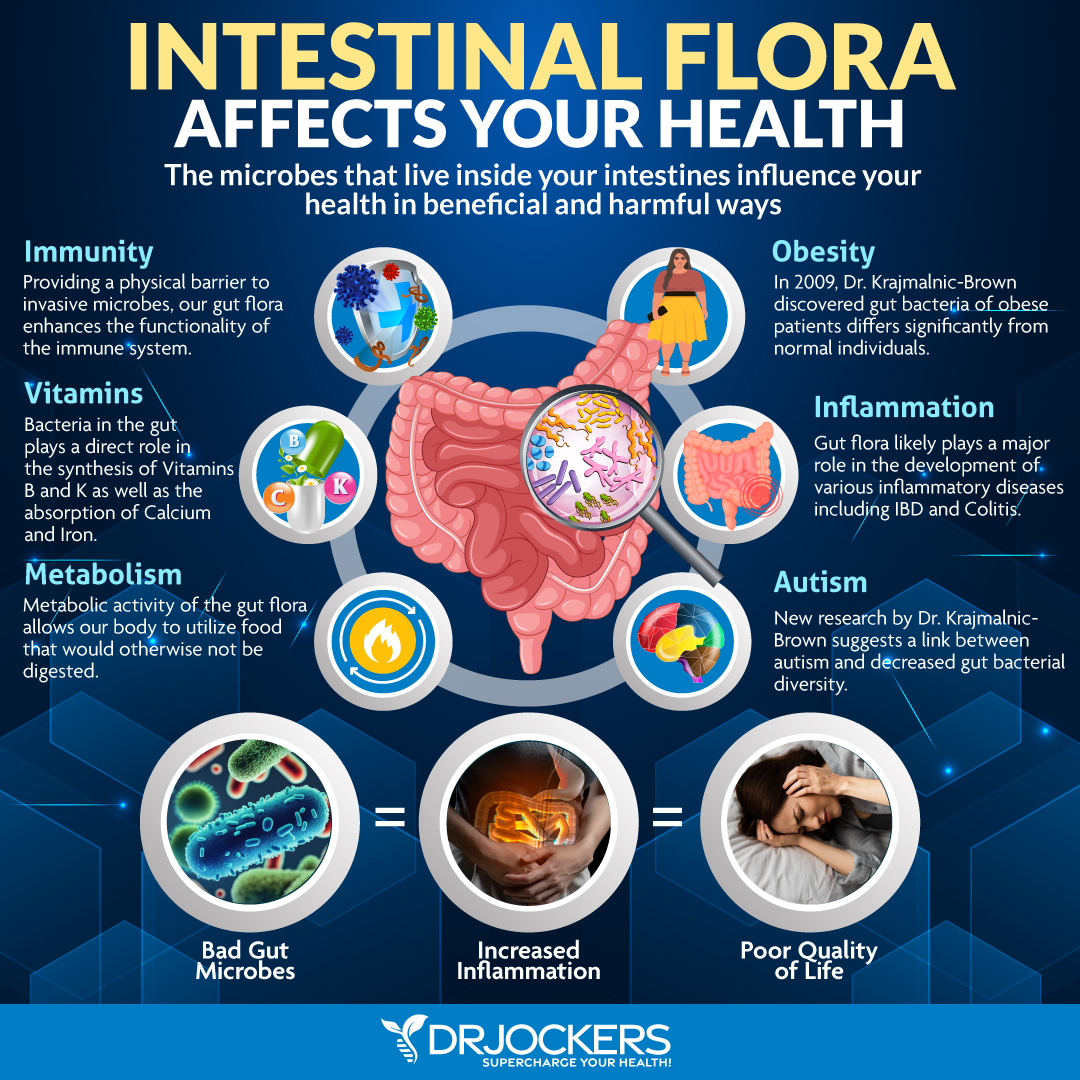
The Gut and Psychological Disorders:
The gut plays a role in over 80% of the immune system and has a direct connection with the brain through the vagus nerve. Poor bacterial balance or dysbiosis is associated with every digestive tract disorder as well as autoimmune conditions and psychological and behavioral issues.
The gut appears to be the key house to good health, and it is imperative that we starve out antagonistic parasites while continuing to inoculate our system with progenic flora. An effective strategy for this is the Gut and Psychology Syndrome (GAPS) program developed by Dr Natasha Campbell-McBride (4).
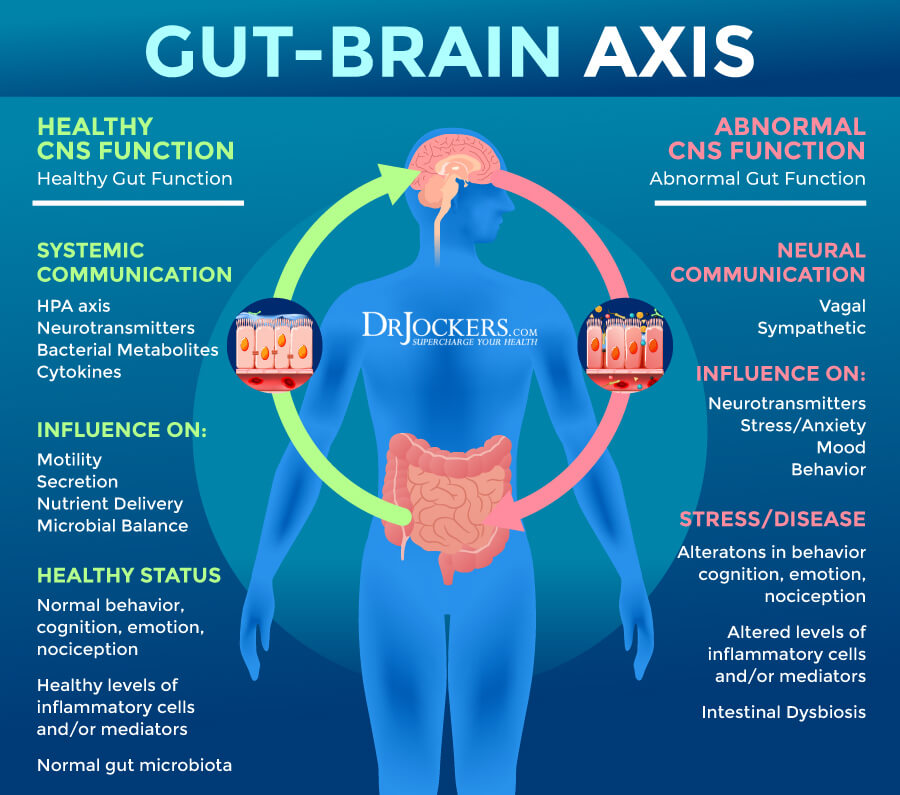
Dysbiosis Affects Mood and Stress Tolerance:
Dr Campbell was one of the first to recognize that when the body has a dysbiotic state and resulting leaky gut syndrome it creates an inflammatory process that affects all regions of the body (5). In particular, the brain is extremely susceptible to this inflammatory stress and it appears to light up regions of the deep limbic system, basal ganglia and anterior cingulate gyrus of the brain that are associated with depression, anxiety and obsessive compulsive disorders (6, 7).
As the name implies, the GAPS diet addresses the damage to the gut flora and in so doing has a positive correlation on the brain function and psychology of the individual. The GAPS diet protocol addresses three major steps to heal the gut and restore balance and equilibrium to the body.
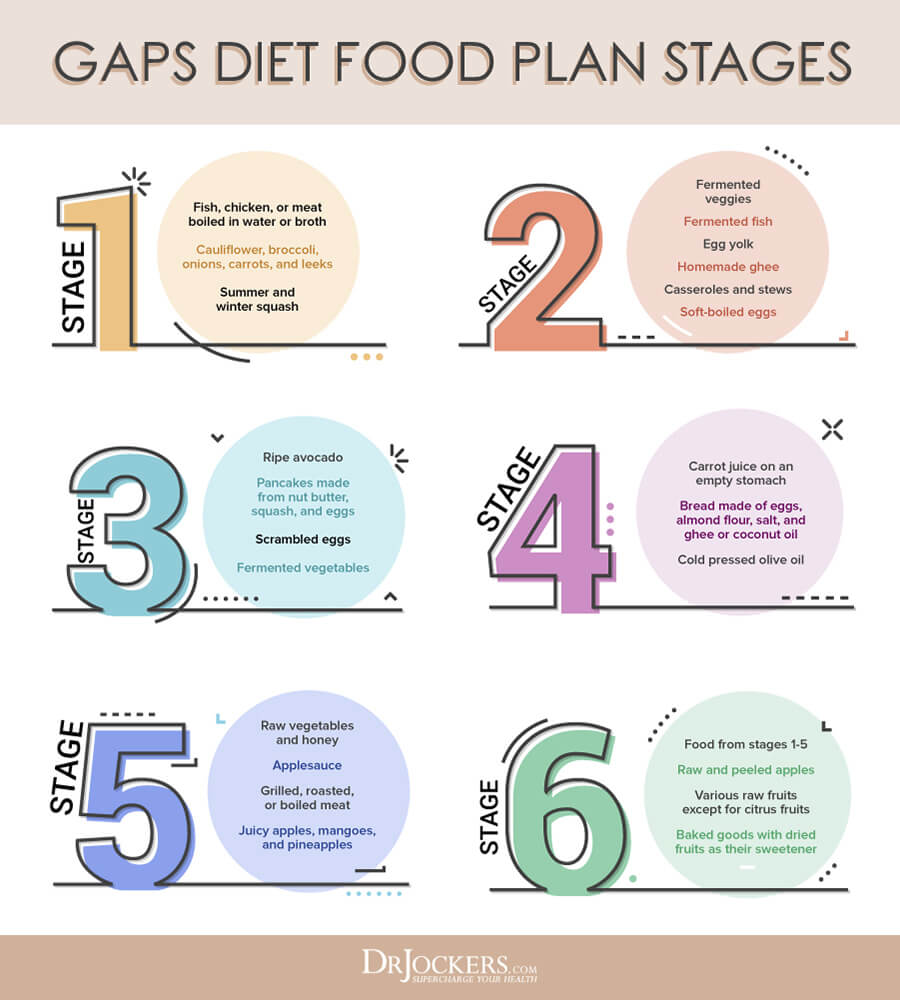
Heal the Gut First:
The first step is about healing the gut by removing any and all food sources that the pathogenic species use to proliferate. Starving off the microbial communities takes time and discipline but has extraordinary effects on an individual’s health. The second step is to re-inoculate the gut with beneficial microbes through fermented superfoods and probiotic supplements. The final step includes detoxifying the body from the environmental toxins stored in the tissues.
Once the gut membrane is damaged, we need to help support the healing of the damaged intestinal tract. This is a 4 step process of:
1. Remove Bad Food Sources: Grains, starches, processed foods, corn, soy, peanut and other common allergens and some FODMAPs.
2. Repair the Gut Membrane: Foods rich in collagen such as organ meats and bone broth/stews and healing supplements such as Gut Repair and L-Glutamine
3. Reinoculate: Put in good healthy microbes with fermented foods and probiotics. Fiber may or may not be included in this category. Microbes feed on fiber so when the microbiome is healthy, fiber is absolutely essential to keep it healthy. When the microbiome is bad than fiber feeds the antagonistic microbes and leads to further inflammation and damage in the gut.
4. Restore: This has to do with getting hydrochloric acid and digestive enzyme levels back to normal. One can use foods such as apple cider vinegar, fresh squeezed lemon, green juices, etc. to help and they can also use supplements such as Acid ProZyme and Super DZyme.
When Fiber Can Be Hazardous:
The GAPS diet does not promote a lot of fiber from the onset. Individuals with severe damage to their gut can not handle foods that are normally considered healthy. For instance, fiber is recognized universally as a healthy and essential component to our diet. However, fiber is a non-discriminatory fuel for all microbial species. This means it will feed parasitic organisms if they are in control of the gut.
Individuals suffering from dysbiosis must minimize their exposure to fiber all together in the early healing phases and instead will focus on healing, anti-parasitic based foods (8). These include stock from organically raised animals which is loaded with specific nutrients that help the gut heal. Organic acids from fermented drinks and herbal teas and infusions are especially helpful during the fasting and healing phases.
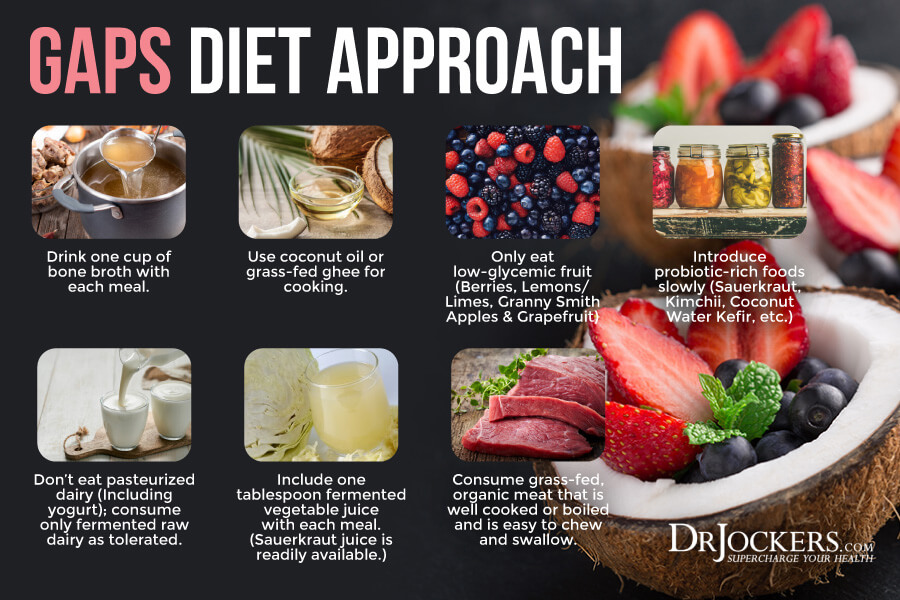
Inflammation Crushing Ebundle
The Inflammation Crushing Ebundle is designed to help you improve your brain, liver, immune system and discover the healing strategies, foods and recipes to burn fat, reduce inflammation and Thrive in Life!
As a doctor of natural medicine, I have spent the past 20 years studying the best healing strategies and worked with hundreds of coaching clients, helping them overcome chronic health conditions and optimize their overall health.
In our Inflammation Crushing Ebundle, I have put together my very best strategies to reduce inflammation and optimize your healing potential. Take a look at what you will get inside these valuable guides below!
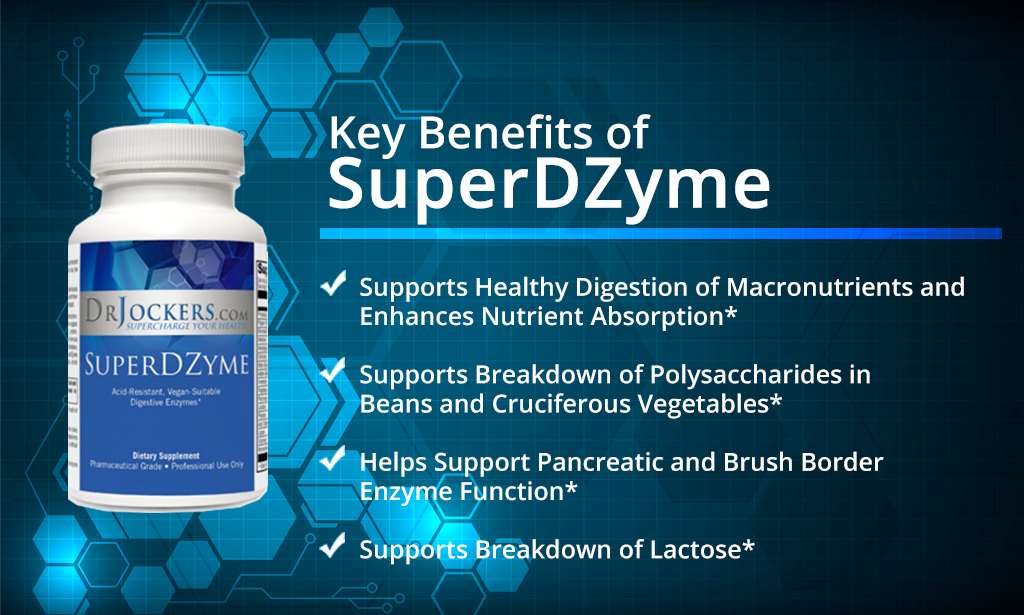




Hi Dr Jockers. Could fermented foods worsen Gut Dysbiosis?
Personally I’ve been struggling with sauerkraut for months and months (IBS). Kefir is the only thing I can digest. Would you suggest people like me to still persist with fermented vegetables?
Hey Amy, they are not for everyone. If you are noticing negative affects then definitely cut them out for the time being!
Thank you for your reply. You are improving the lives of millions of people! Thank you
Thanks you Amy!
Dr, Jockers,
Is this good for people without a gall bladder?
Yes absolutely it can be!